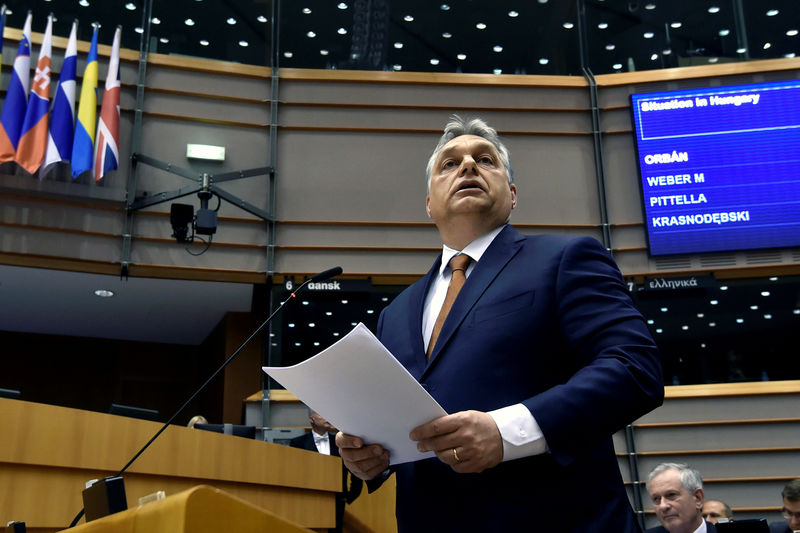By Krisztina Than
BUDAPEST (Reuters) - Hungary will modify proposed legislation on non-governmental organisations that get foreign funding to address objections by the Council of Europe, the government said on Thursday, backtracking on some elements of the controversial bill.
Under a bill drafted by right-wing populist Prime Minister Viktor Orban's government, NGOs with foreign donations of at least 7.2 million forints ($26,207.55) must register with the authorities and declare themselves as foreign-funded. The government says the aim is to ensure greater transparency.
The NGOs say the bill - which is due to be passed this month - stigmatises them, and the legislation has triggered a series of mass protests over recent weeks.
"We have accepted the legal remarks of the (Council of Europe's advisory panel) Venice Commission, but we could not accept its political judgement," Orban's chief of staff, Janos Lazar told a news conference.
He said the justice minister will submit an amendment to the legislation addressing some of the Venice Commission's criticism. That will include changes to sanctions on non-complying NGOs and the extent of required public disclosure of foreign funding.
The rights panel said the term "organisation receiving support from abroad" in the bill appeared to be neutral. But considering Hungary's "strong political statements against associations receiving support from abroad, this label risks adversely affecting their legitimate activities," it said.
The European Commission has also begun legal action against Hungary over a separate law that critics say targets Central European University. The university was founded by Hungarian-born financier George Soros, who promotes a liberal world view Orban detests .
Along with tough anti-immigrant rhetoric, vilifying Soros serves Orban's domestic political aims as he prepares for April 2018 elections, where he will seek re-election for a third consecutive term. The strategy has worked well for him so far.
The latest opinion polls put support for his Fidesz party at around 30 percent, ahead of his nearest rivals, the radical nationalist Jobbik party and the Socialists, each on just over 10 percent.

($1 = 274.73 forints)